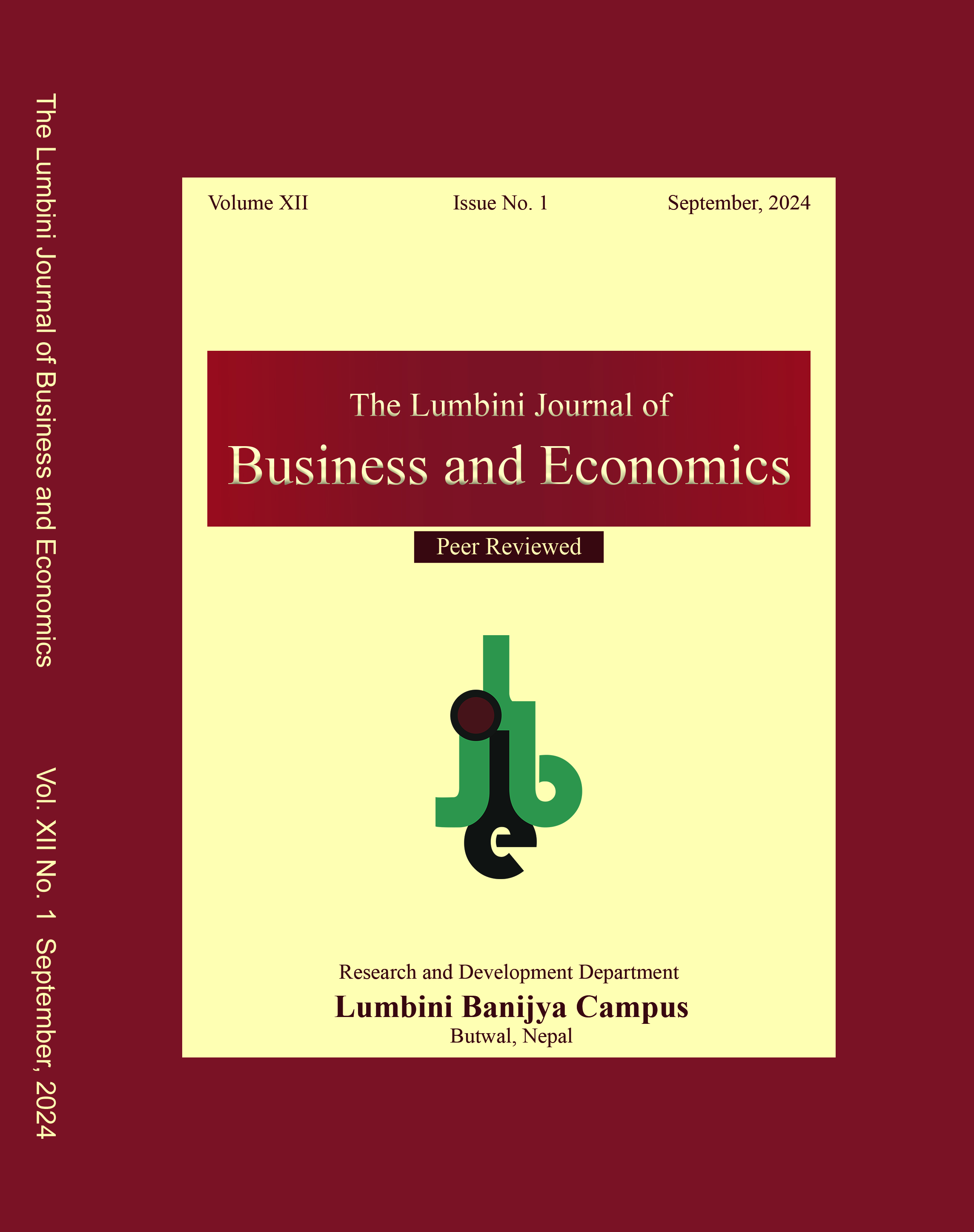Entrepreneurial Intention Among Management Students of Butwal Sub-Metropolitan City
DOI:
https://doi.org/10.3126/ljbe.v12i1.70326Keywords:
Entrepreneurial intention, theory of planned behavior, entrepreneurial mindset, entrepreneurial education.`Abstract
Purpose: This study aims to investigate the factors influencing entrepreneurial intention among management students in Butwal Sub-Metropolitan City, and explore key determinants such as personal attitude, subjective norms, perceived behavioral control, and leadership capacity.
Methods: Data were collected through surveys from 388 respondents out of 13093 management students analyzing their perceptions and intentions toward entrepreneurship through questionnaire methods using a five-point Likert scale method. The study used the Theory of Planned Behavior as a theoretical framework.
Results: The study reveals that positive personal attitudes and strong perceived behavioral control significantly enhance entrepreneurial intention while subjective norms and leadership capacity also play crucial roles. The study explores the importance of entrepreneurial education in shaping future entrepreneurs despite numerous challenges, including high interest rates and limited market opportunities.
Conclusion: The study emphasizes the need for understanding how management students in a Nepalese context perceive and intend to engage in entrepreneurial activities to cultivate entrepreneurial mindsets in emerging economies. The study highlights the need for the implementation of targeted policies and educational programs effectively to pave the way for creating conducive environment for entrepreneurship among students.




